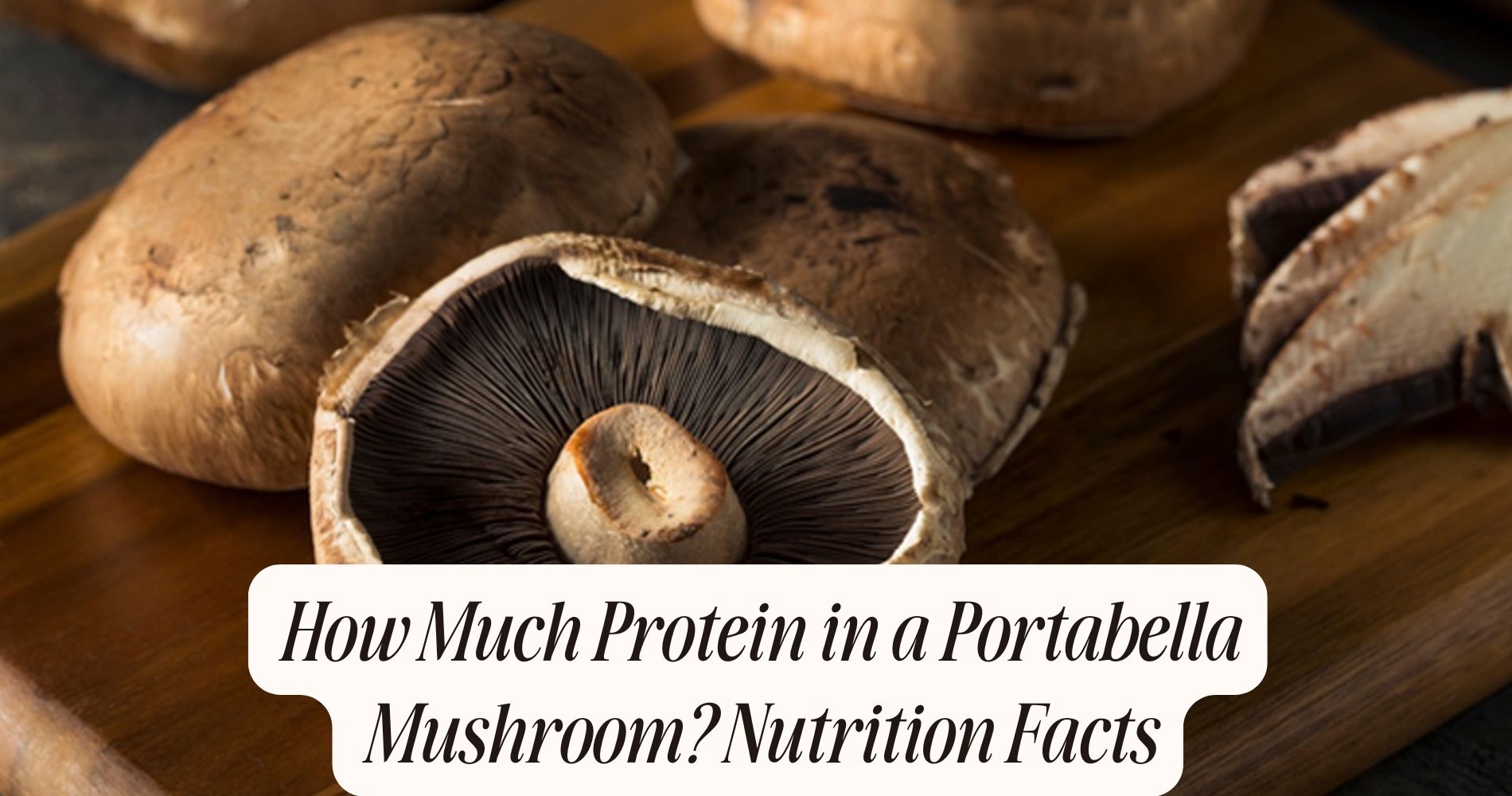
Health Benefits of Eating Mushrooms: Why You Need Them
The health benefits of eating mushrooms go beyond their rich flavor—they’re a powerhouse of essential nutrients. Loaded with immune-boosting beta-glucans, mushrooms help activate macrophages and natural killer cells, strengthening your body's defenses. Their high ergothioneine content fights oxidative stress, potentially slowing aging effects. Plus, they support heart health with cholesterol-lowering compounds and potassium for blood pressure regulation. Packed with B vitamins and vitamin D, mushrooms also aid energy metabolism and bone health. Want to unlock the full health benefits of eating mushrooms? Keep reading!
Boosting Your Immune System
When you incorporate mushrooms into your diet, you're giving your immune system a powerful ally. Fungal compounds present in mushrooms, such as beta-glucans, enhance your body's immune response.
These compounds stimulate the activity of macrophages and natural killer cells, which play essential roles in your body's defense against pathogens. Scientific studies have shown that consuming mushrooms can modulate immune function, potentially reducing the risk of infections and diseases.

Mushrooms like shiitake and maitake are particularly noted for their immune-boosting properties due to their high concentration of these beneficial compounds. By introducing these fungi into your meals, you're not just adding flavor but also bolstering your body's natural defenses.
It's a simple, nutrient-focused approach to maintaining ideal health.
Rich Source of Antioxidants
Although often overlooked, mushrooms are a rich source of antioxidants that play an essential role in maintaining cellular health. They contain compounds like ergothioneine and glutathione, which possess significant antioxidant properties.
These antioxidants help neutralize free radicals, unstable molecules that can cause cellular damage and contribute to aging and various diseases. By incorporating mushrooms into your diet, you bolster your body's defense against oxidative stress and enhance cellular protection.
Research indicates that mushrooms' free radical protection helps reduce the risk of chronic conditions, supporting overall wellness. Ergothioneine, in particular, is a powerful antioxidant that accumulates in tissues prone to oxidative damage.
Including mushrooms in your meals provides a natural, nutrient-dense way to strengthen your antioxidant defenses, promoting long-term cellular health.
Supporting Heart Health
Incorporating mushrooms into your diet can greatly support heart health due to their rich nutritional profile. They contain compounds like beta-glucans and ergosterol, which have been linked to cholesterol reduction. These components help lower LDL cholesterol levels, which is essential for preventing plaque buildup in your arteries.
Moreover, mushrooms are an excellent source of potassium, a mineral that helps regulate blood pressure by balancing sodium levels in your body. This regulation is important in reducing the risk of hypertension—a major contributor to cardiovascular disease.

Additionally, mushrooms provide antioxidants that combat oxidative stress, further protecting your heart. By including mushrooms in your meals, you can effectively support cardiovascular health through natural, nutrient-dense ingredients.
Providing Essential Nutrients
Mushrooms are a powerhouse of essential nutrients that can greatly enhance your diet. Their impressive nutrient density guarantees you get maximum nutrition with minimal calories.
They're packed with important vitamins and minerals. For instance, mushrooms are a significant source of B vitamins, including riboflavin, niacin, and pantothenic acid. These vitamins are essential for energy metabolism and supporting brain function.
You'll also find that mushrooms contain vitamin D, which is necessary for bone health and immune function. Additionally, they provide selenium, an antioxidant that helps protect your cells from damage.
Aiding in Weight Management
Beyond their nutrient-rich profile, these fungi offer significant benefits for weight management. Mushrooms are low in calories and high in dietary fiber, making them an excellent choice for those seeking to control weight.
Various mushroom varieties, such as shiitake, portobello, and white button, can be integrated into meals to promote satiety, helping you feel fuller for longer periods. This aids in portion control, as consuming fewer calories is essential for weight management.

Additionally, mushrooms contain compounds like beta-glucans that may help regulate blood sugar levels, reducing hunger spikes. By replacing higher-calorie ingredients with mushrooms, you can decrease overall caloric intake without sacrificing flavor or nutritional value.
Incorporating diverse mushroom varieties into your diet can be a strategic approach to effective weight management.
Promoting Brain Health
While often overlooked, the cognitive benefits of mushrooms are gaining scientific attention due to their nutrient composition. Rich in antioxidants and bioactive compounds, mushrooms like Lion's Mane contain hericenones and erinacines, which are known to support cognitive function. These compounds stimulate the production of nerve growth factor (NGF), a protein essential for the growth and maintenance of neurons in the brain.
By promoting neuron health, mushrooms may contribute to memory enhancement and improved mental clarity.
Additionally, mushrooms provide B vitamins, such as niacin and riboflavin, which play crucial roles in brain energy production and cognitive processes. Regular consumption of mushrooms can mitigate oxidative stress and inflammation, both of which are linked to cognitive decline.
Including mushrooms in your diet could be a strategic step toward preserving brain health.
Enhancing Skin Health
Even though they mightn't be the first thing that comes to mind for skincare, mushrooms are packed with nutrients that can greatly enhance skin health.
Mushroom varieties such as shiitake, reishi, and maitake are rich in antioxidants and vitamins like D and B-complex. These nutrients help combat oxidative stress, reducing premature aging and promoting a more youthful appearance.

Additionally, mushrooms contain polysaccharides, which are known to improve skin hydration by enhancing the skin's ability to retain moisture. This leads to a plumper, more supple complexion.
By incorporating a variety of mushrooms into your diet, you support your skin's natural barrier, helping it to maintain elasticity and resilience.
Get the Benefits of Mushrooms in a Tasty, Convenient Gummy
Want to enjoy the health benefits of eating mushrooms without cooking them daily? Well Gummies 10-IN-1 Mushroom Gummies make it effortless! Packed with 10 powerful mushrooms, these vegan gummies support brain function, energy levels, and immune health—all in a delicious, chewable form. With a fresh wild berry flavor, they taste just like candy, offering steady energy with no jitters or crash. Elevate your wellness routine the easy way—fuel your body and mind with Well Gummies!
Frequently Asked Questions
Can Mushrooms Help Improve Digestive Health?
Yes, mushrooms can improve your digestive health. Their fiber supports a healthy gut microbiome by promoting beneficial bacteria growth. This nutrient-dense food provides prebiotics, enhancing gut function and reducing digestive issues. Integrate them into your diet for ideal results.
Are There Specific Mushrooms That Aid in Stress Reduction?
You'll find that certain medicinal varieties like Reishi and Lion's Mane are renowned for stress relief. These mushrooms contain compounds that modulate cortisol levels and enhance brain function, offering a nutrient-focused approach to managing stress scientifically.
How Do Mushrooms Impact Blood Sugar Levels?
Mushrooms can impact blood sugar levels by enhancing blood sugar regulation and improving insulin sensitivity. They're rich in fiber and beta-glucans, which help moderate glucose absorption, contributing to stable blood sugar levels and overall metabolic health.
What Role Do Mushrooms Play in Improving Sleep Quality?
You can improve sleep quality by consuming certain mushroom varieties. Some mushrooms contain nutrients that regulate sleep hormones like melatonin and serotonin, helping balance your sleep-wake cycle and ensuring you get a restorative night's sleep.
Do Mushrooms Have Any Benefits for Joint Health?
You'll find that mushroom compounds like ergothioneine and beta-glucans help reduce joint inflammation. These nutrients act as antioxidants, supporting joint health and potentially alleviating symptoms related to conditions like arthritis, according to scientific studies.
Conclusion
Incorporating mushrooms into your diet can greatly boost your overall health. They're packed with antioxidants that strengthen your immune system, and they provide essential nutrients necessary for your body's ideal functioning. Mushrooms support heart health by reducing cholesterol levels and aid in weight management due to their low-calorie content. Additionally, they promote brain and skin health, thanks to their rich vitamin and mineral composition. Embrace mushrooms as a nutrient-dense addition to your meals for a healthier lifestyle.




